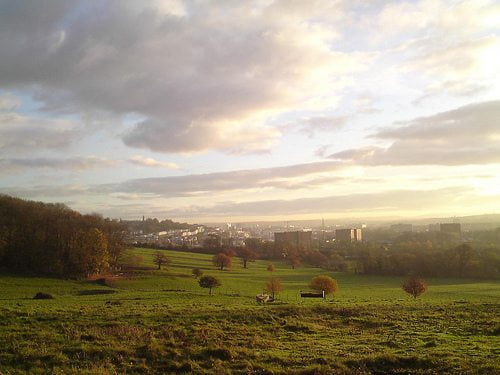

Features
Sustainability in the city: Bristol, UK
With a population of around 435,000, Bristol is the largest city in the south-west of England. In many ways, it seems like a capital, detached from London and the north. It has renowned universities, cultural diversity and a thriving media sector, but there is more to it than that.
The European Green Capital for 2015 (the winners are announced early), Bristol has ambitious plans for energy and sustainable transport investment. It has allocated a budget of £500m for transport improvements by 2015 and up to £300m for energy efficiency and renewable energy by 2020.
Despite a growing economy, Bristol’s carbon emissions have consistently fallen since 2005, and the Avonmouth wind turbines are perhaps the most visible symbol of Bristol’s commitment to a responsible future.
In addition, Bristol is working to bring solar arrays to council-owned buildings and schools. Believed to be the largest project of its kind in the UK, the local council says the initiative will save taxpayers almost £60,000 per year, and generate income of around £100,000 a year for a quarter of a century.
The council has also installed a number of biomass boilers across the city. The first of these, at Blaise Nursery, was named best renewable energy project in the south-west by the RegenSW Green Energy Award. It uses wood ‘waste’ generated by the council’s parks and woodlands as its fuel source.
Bristol was named England’s first ‘cycling city’ in 2008, and there are plans for investment in thousands of kilometres of new cycle paths. A proposed £195m bus system is also in the pipeline.
Each year, the city hosts the Big Green Week, a festival of eco ideas, art and entertainment. It is also home to the Bristol Green Capital Partnership, a free membership organisation whose aim is to make Bristol “a low-carbon city with a high quality of life for all.”
As well as being green, Bristol is, well, green. It is a picturesque metropolis, and a Bristolian at home is never too far from the countryside. Green spaces are everywhere, in a way that makes it seem as if nature is encroaching back, trying to reclaim the city.
This may have something to do with the fact that last year, a MoneySupermarket report found that out of the UK’s 12 largest cities, adults living in Bristol have the highest quality of life.
Bristol claimed first place thanks to boasting an average salary of £22,293 – above the national average of £21,473 – the highest disposable income growth and unemployment rates of 8%, one of the lowest in the country.
Bristol has also been home to many ethical and sustainable businesses and charitable enterprises. Among them are clean transport campaigners Sustrans, Forum for the Future, Triodos Bank, and ethical and environmental investment advisory firm Stewart Investment Planning.
Managing director Martin Stewart, who has lived in Bristol all his life, describes himself as a “proud Bristolian”.
“Bristol is a city that is particularly engaged with sustainability, ethical and charitable causes”, he adds.
The jury behind the European Green Capital award says that all of the UK can learn from Bristol’s example. For now, it is Copenhagen’s time in the sun, but Bristol does not have long to wait for a year’s worth of deserved recognition for its efforts in sustainability.
Further reading:
Sustainability in the city: Copenhagen, Denmark
Existing city infrastructure can be ‘reprogrammed’
Our future cities will have to be smarter and more resilient
Just one in four European cities fully prepared for climate change
We need expert problem-solvers to build the cities of the future


 Environment10 months ago
Environment10 months agoAre Polymer Banknotes: an Eco-Friendly Trend or a Groundswell?

 Environment12 months ago
Environment12 months agoEco-Friendly Home Improvements: Top 7 Upgrades for 2025

 Features9 months ago
Features9 months agoEco-Friendly Cryptocurrencies: Sustainable Investment Choices

 Features10 months ago
Features10 months agoEco-Friendly Crypto Traders Must Find the Right Exchange




























